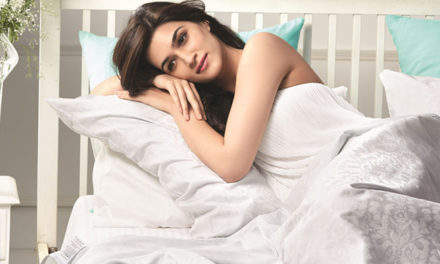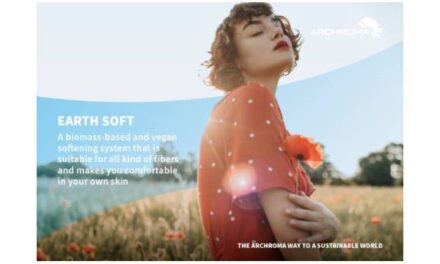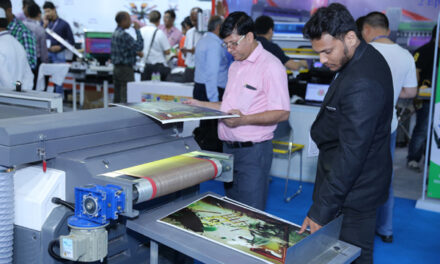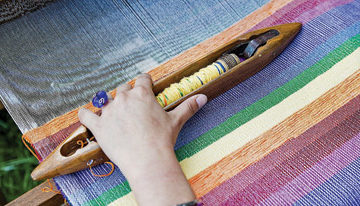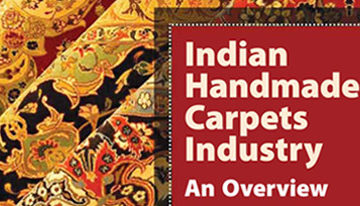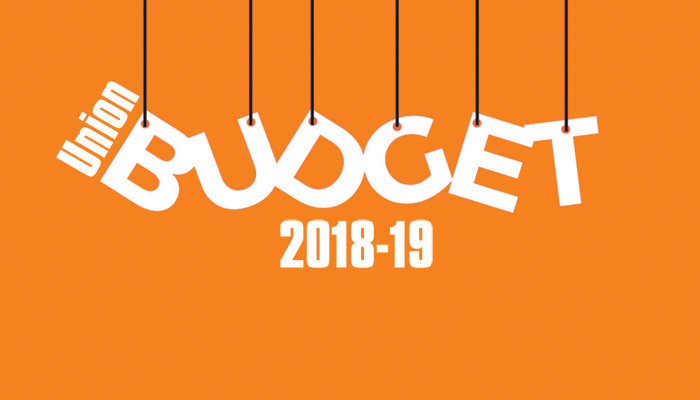 Cotton bedding, cotton blankets and several types of floor coverings are on the Trump administration’s hit list for up to 100 percent tariffs on European imports. The Home Fashion Products Association (HFPA) informed members that the US Trade Representative (USTR) has published a draft notice listing additional goods from the EU that it will consider hitting with additional tariffs due to the Airbus subsidy dispute. The USTR will be accepting comments, once the notice is published, until Jan. 13, 2020.
Cotton bedding, cotton blankets and several types of floor coverings are on the Trump administration’s hit list for up to 100 percent tariffs on European imports. The Home Fashion Products Association (HFPA) informed members that the US Trade Representative (USTR) has published a draft notice listing additional goods from the EU that it will consider hitting with additional tariffs due to the Airbus subsidy dispute. The USTR will be accepting comments, once the notice is published, until Jan. 13, 2020.
Here are the products that may be of concern to home textiles importers by HTS subheading and HTS description:
| 5205.31.00 | Multiple or cabled cotton yarn, 85 percent or more cotton by weight, of uncombed fibres, n/o 14 nm per single yarn, not put up for retail sale |
| 5206.32.00 | Multiple or cabled cotton yarn, < 85 percent cotton by weight, of uncombed fibres, over 14 but n/o 43 nm/single yarn, not put up for retail sale |
| 5208.13.00 | Unbleached 3- or 4-thread twill fabrics of cotton, incl. cross twill, containing 85 percent or more of cotton by weight, weighing not over 200 g/m2 |
| 5402.11.30 | Single high tenacity yarn of aramids, not put up for retail sale |
| 5402.11.60 | Multiple (folded) or cabled high tenacity yarn (except sewing thread) of aramids, not put up for retail sale |
| 5402.20.30 | Single high tenacity yarn of polyesters, not put up for retail sale |
| 5503.20.00 | Synthetic staple fibres, not carded, combed or otherwise processed for spinning, of polyesters |
| 5605.00.90 | Metalized textile yarn nesoi, of man-made monofilament or strip or the like, other than ungimped or w/twist of < 5 turns per meter |
| 5609.00.10 | Articles of yarn, strip, twine, cordage, rope or cables nesoi, of cotton |
| 5609.00.20 | Articles of yarn, strip, twine, cordage, rope or cables nesoi, of vegetable fibres except cotton |
| 5609.00.30 | Articles of yarn, strip, twine, cordage, rope or cables nesoi, of man-made fibres |
| 5609.00.40 | Articles of yarn, strip or the like of man-made monofilaments, twine, cordage, rope or cables, nesoi |
| 5701.10.16 | Carpets & other textile floor coverings, hand-knotted or hand-inserted, w/ov 50 percent by weight of the pile of fine animal hair, nesoi |
| 5701.10.40 | Carpets and other textile floor coverings, of wool or fine animal hair, hand-hooked (tufts were inserted and knotted by hand or hand tool) |
| 5701.10.90 | Carpets and other textile floor coverings, of wool or fine animal hair, not hand-hooked, not hand knotted during weaving |
| 5702.10.90 | “Kelem”, “Schumacks”, “Karamanie” and similar hand-woven rugs, other than certified hand-loomed and folklore products |
| 5702.41.20 | Carpets and other textile floor coverings of pile construction, woven, not tufted or flocked, made up, of wool or fine animal hair, nesoi |
| 5702.42.10 | Wilton, velvet and like floor coverings of pile construction, woven, not tufted or flocked, made up, of man-made textile materials |
| 5702.92.10 | Hand-loomed carpet & other textile floor coverings, not of pile construction, woven, made up, of man-made textile materials, nesoi |
| 5703.10.20 | Hand-hooked carpets and other textile floor coverings, tufted, whether or not made up, of wool or fine animal hair |
| 6301.30.00 | Blankets (other than electric blankets) and traveling rugs, of cotton |
| 6301.90.00 | Blankets and traveling rugs, nesoi |
| 6302.21.50 | Bed linen, not knit or crocheted, printed, of cotton, cont. any embroidery, lace, braid, edging, trimming, piping or applique work, n/napped |
| 6302.21.90 | Bed linen, not knit or croc, printed, of cotton, not cont. any embroidery, lace, braid, edging, trimming, piping or applique work, not napped |
In the memo, HFPA legal counsel Robert Leo noted that the 15 percent tariffs on List 4B imports from China – which heavily impact home textiles manufactured there – are currently scheduled to become effective this coming, Dec. 15.
“If [HFPA] members have products on List 4B and it goes into effect without change, the additional 15 percent tariff will be effective for goods entered into the US on December 15, 2019,” wrote Leo, a partner at Meeks, Sheppard, Leo & Pillsbury. The USTR will accept exclusion requests on List 4B tariffs until Jan. 31, 2020. If granted, the exclusion would be retroactive, he said.


